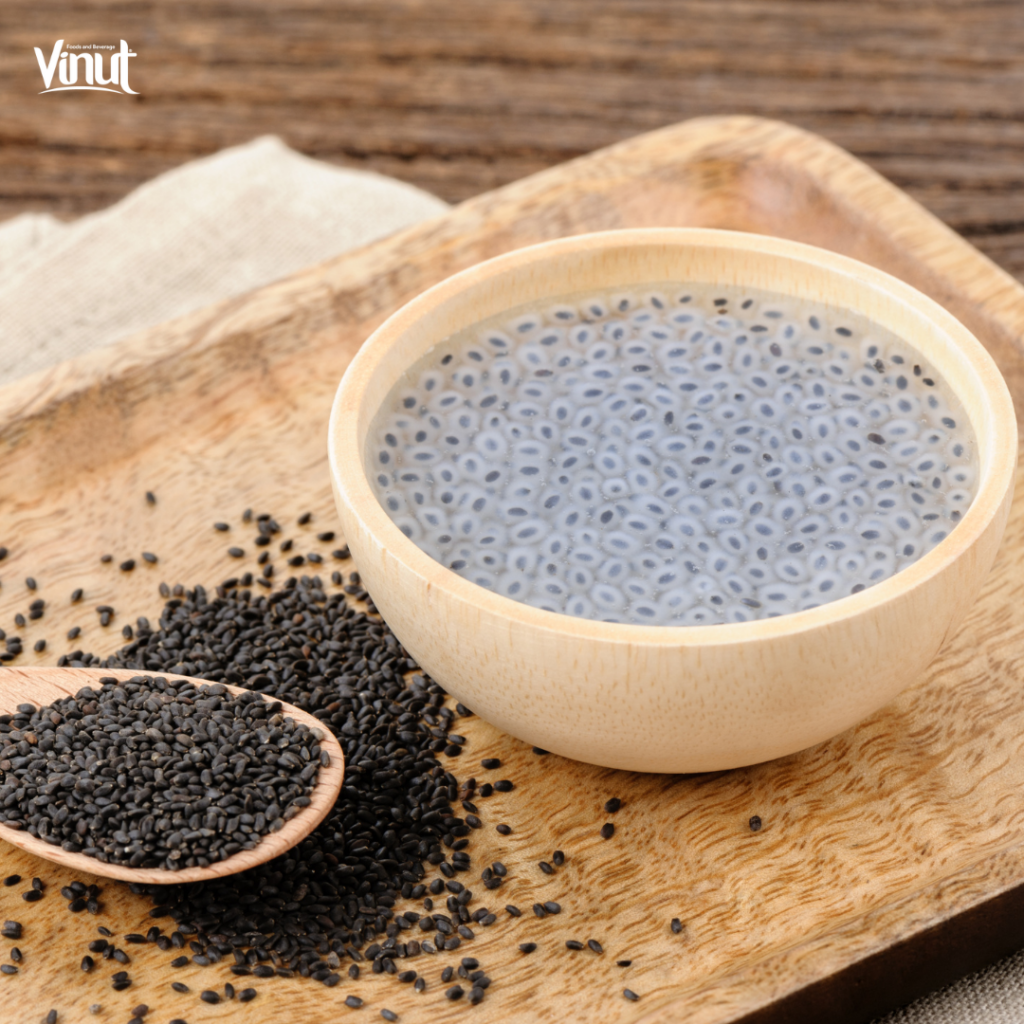
News
Is Basil Seed Juice Safe During Pregnancy?

Pregnancy is a time of heightened attention to diet and lifestyle choices to ensure the health and well-being of both the mother and the developing baby. Basil seed juice, known for its numerous health benefits, is a popular choice among health-conscious individuals. However, the safety of consuming basil seed juice during pregnancy is a topic of interest and concern for many expectant mothers. This article Cojo Cojo will delve into the nutritional profile of basil seeds, their potential benefits and risks during pregnancy, and expert recommendations to help you make an informed decision.

1. Understanding Basil Seeds
Nutritional Profile
Basil seeds, also known as sabja seeds or tukmaria, are the seeds of the sweet basil plant (Ocimum basilicum). They are rich in essential nutrients, including:
- Dietary Fiber: Promotes healthy digestion and prevents constipation.
- Protein: Supports muscle growth and repair.
- Omega-3 Fatty Acids: Beneficial for brain and heart health.
- Vitamins and Minerals: Includes vitamin K, vitamin C, calcium, magnesium, and iron.
Traditional Uses
Basil seeds have been used in traditional medicine for centuries to treat various ailments, including digestive issues, respiratory problems, and skin conditions. Their cooling and soothing properties make them a popular ingredient in beverages, particularly in hot climates.
2. Potential Benefits of Basil Seed Juice During Pregnancy
Digestive Health
Prevents Constipation
Constipation is a common issue during pregnancy due to hormonal changes and the growing uterus putting pressure on the intestines. The high fiber content in basil seeds can help promote regular bowel movements and prevent constipation.
Soothes the Stomach
Basil seed juice has soothing properties that can help alleviate symptoms of indigestion and bloating, which are common during pregnancy.
Hydration and Cooling Effect
Pregnant women need to stay hydrated to support their increased blood volume and amniotic fluid levels. Basil seed juice, with its cooling and hydrating properties, can help maintain proper hydration and provide relief from the heat.
Blood Sugar Regulation
Basil seeds have been shown to help regulate blood sugar levels by slowing down the absorption of sugar in the intestines. This can be particularly beneficial for pregnant women at risk of gestational diabetes.
Immune System Support
The antioxidants and anti-inflammatory compounds in basil seeds can help boost the immune system, protecting both the mother and the developing baby from infections and illnesses.

3. Potential Risks and Considerations
Allergic Reactions
While basil seeds are generally considered safe, some individuals may be allergic to them. Allergic reactions can range from mild to severe and may include symptoms such as itching, swelling, and difficulty breathing.
Hormonal Effects
Basil seeds contain phytoestrogens, plant compounds that can mimic the effects of estrogen in the body. There is some concern that consuming large amounts of phytoestrogens during pregnancy could potentially interfere with hormone levels and fetal development. However, the research on this topic is limited, and more studies are needed to determine the safety of phytoestrogens during pregnancy.
Laxative Effect
The high fiber content in basil seeds can have a laxative effect, especially when consumed in large quantities. While this can be beneficial for preventing constipation, excessive consumption may lead to diarrhea and dehydration.
Expert Recommendations
1. Consult with a Healthcare Provider
Before incorporating basil seed juice into your pregnancy diet, it is essential to consult with your healthcare provider. They can provide personalized advice based on your health history and specific needs.
2. Moderate Consumption
If your healthcare provider gives the green light, it is best to consume basil seed juice in moderation. A small amount can provide the potential benefits without posing significant risks.
3. Monitor for Allergic Reactions
Pay attention to any signs of allergic reactions after consuming basil seed juice. If you experience any adverse symptoms, discontinue use and seek medical advice.
4. Choose Quality Products
Ensure that you are using high-quality basil seeds and preparing the juice in a hygienic manner. Contaminated or poor-quality seeds can pose health risks.

5. How to Prepare Basil Seed Juice
Simple Recipe
Ingredients:
- 1 tablespoon of basil seeds
- 1 cup of water
- Sweetener (honey or sugar) to taste
- Lemon juice (optional)
Instructions:
- Soak the Basil Seeds: Add the basil seeds to a cup of water and let them soak for about 15-20 minutes. The seeds will swell and form a gel-like consistency.
- Add Sweetener: Stir in honey or sugar to taste.
- Optional Flavoring: Add a few drops of lemon juice for added flavor.
- Serve: Serve the basil seed juice chilled.
Flavor Variations
- Fruit Juice Blend: Mix soaked basil seeds with your favorite fruit juice for a refreshing and nutritious drink.
- Herbal Infusion: Add basil seeds to herbal teas for added texture and benefits.

6. Alternative Sources of Nutrients
If you are unsure about consuming basil seed juice during pregnancy, there are plenty of other ways to obtain the same nutrients:
Fiber-Rich Foods
- Fruits: Apples, pears, berries
- Vegetables: Carrots, broccoli, spinach
- Whole Grains: Oats, quinoa, brown rice
Hydration
- Water: Aim for at least 8-10 glasses per day
- Coconut Water: A natural electrolyte-rich drink
- Herbal Teas: Chamomile, ginger, and peppermint
Omega-3 Fatty Acids
- Flaxseeds: Ground flaxseeds can be added to smoothies and yogurt
- Chia Seeds: Similar to basil seeds, chia seeds can be soaked and added to beverages
- Fatty Fish: Salmon, mackerel, and sardines

Conclusion
Basil seed juice offers numerous health benefits, including improved digestion, hydration, blood sugar regulation, and immune support. However, its safety during pregnancy is not well-studied, and potential risks such as allergic reactions and hormonal effects should be considered. It is crucial to consult with a healthcare provider before incorporating basil seed juice into your pregnancy diet. By doing so, you can enjoy the potential benefits while minimizing any risks to you and your baby.
FAQs
1. Can I drink basil seed juice every day during pregnancy?
It is best to consult with your healthcare provider before drinking basil seed juice daily during pregnancy. They can provide personalized advice based on your health and dietary needs.
2. Are there any side effects of drinking basil seed juice during pregnancy?
Possible side effects include allergic reactions, hormonal effects, and a laxative effect. It is important to consume basil seed juice in moderation and monitor for any adverse reactions.
3. How much basil seed juice is safe to drink during pregnancy?
Moderation is key. Start with a small amount and see how your body reacts. Consult with your healthcare provider for personalized recommendations.
4. Can basil seed juice help with pregnancy-related constipation?
Yes, the high fiber content in basil seeds can help alleviate constipation during pregnancy. However, it is important to consume it in moderation to avoid excessive laxative effects.
5. What are some other hydrating drinks I can have during pregnancy?
Other hydrating drinks include water, coconut water, herbal teas, and fruit juices. Ensure that you are consuming a variety of fluids to stay hydrated.
